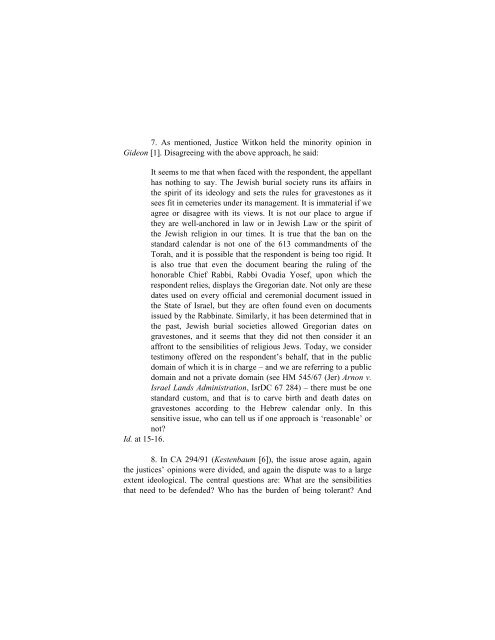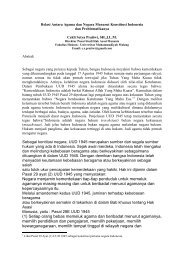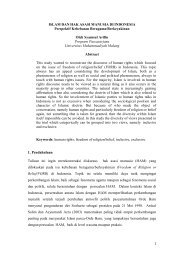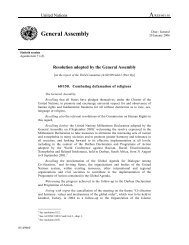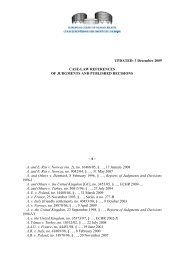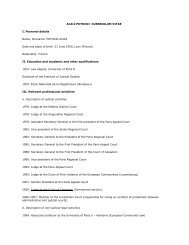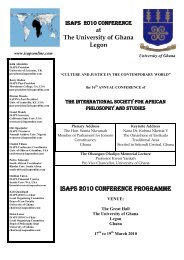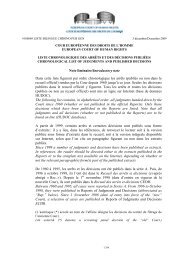Fredrika Shavit v. Rishon Lezion Jewish Burial Society
Fredrika Shavit v. Rishon Lezion Jewish Burial Society
Fredrika Shavit v. Rishon Lezion Jewish Burial Society
Create successful ePaper yourself
Turn your PDF publications into a flip-book with our unique Google optimized e-Paper software.
7. As mentioned, Justice Witkon held the minority opinion in<br />
Gideon [1]. Disagreeing with the above approach, he said:<br />
It seems to me that when faced with the respondent, the appellant<br />
has nothing to say. The <strong>Jewish</strong> burial society runs its affairs in<br />
the spirit of its ideology and sets the rules for gravestones as it<br />
sees fit in cemeteries under its management. It is immaterial if we<br />
agree or disagree with its views. It is not our place to argue if<br />
they are well-anchored in law or in <strong>Jewish</strong> Law or the spirit of<br />
the <strong>Jewish</strong> religion in our times. It is true that the ban on the<br />
standard calendar is not one of the 613 commandments of the<br />
Torah, and it is possible that the respondent is being too rigid. It<br />
is also true that even the document bearing the ruling of the<br />
honorable Chief Rabbi, Rabbi Ovadia Yosef, upon which the<br />
respondent relies, displays the Gregorian date. Not only are these<br />
dates used on every official and ceremonial document issued in<br />
the State of Israel, but they are often found even on documents<br />
issued by the Rabbinate. Similarly, it has been determined that in<br />
the past, <strong>Jewish</strong> burial societies allowed Gregorian dates on<br />
gravestones, and it seems that they did not then consider it an<br />
affront to the sensibilities of religious Jews. Today, we consider<br />
testimony offered on the respondent’s behalf, that in the public<br />
domain of which it is in charge – and we are referring to a public<br />
domain and not a private domain (see HM 545/67 (Jer) Arnon v.<br />
Israel Lands Administration, IsrDC 67 284) – there must be one<br />
standard custom, and that is to carve birth and death dates on<br />
gravestones according to the Hebrew calendar only. In this<br />
sensitive issue, who can tell us if one approach is ‘reasonable’ or<br />
not?<br />
Id. at 15-16.<br />
8. In CA 294/91 (Kestenbaum [6]), the issue arose again, again<br />
the justices’ opinions were divided, and again the dispute was to a large<br />
extent ideological. The central questions are: What are the sensibilities<br />
that need to be defended? Who has the burden of being tolerant? And


